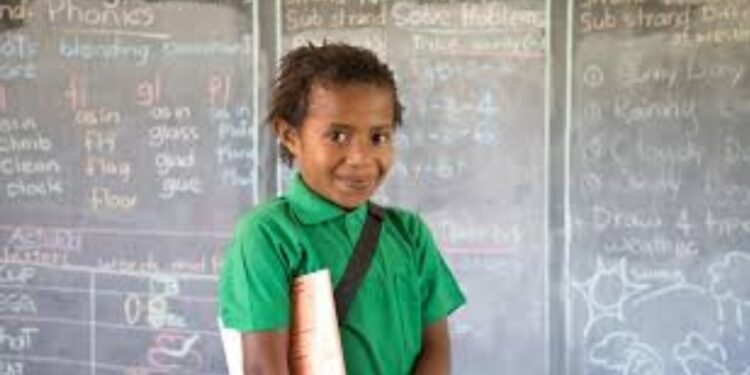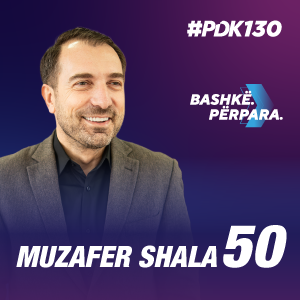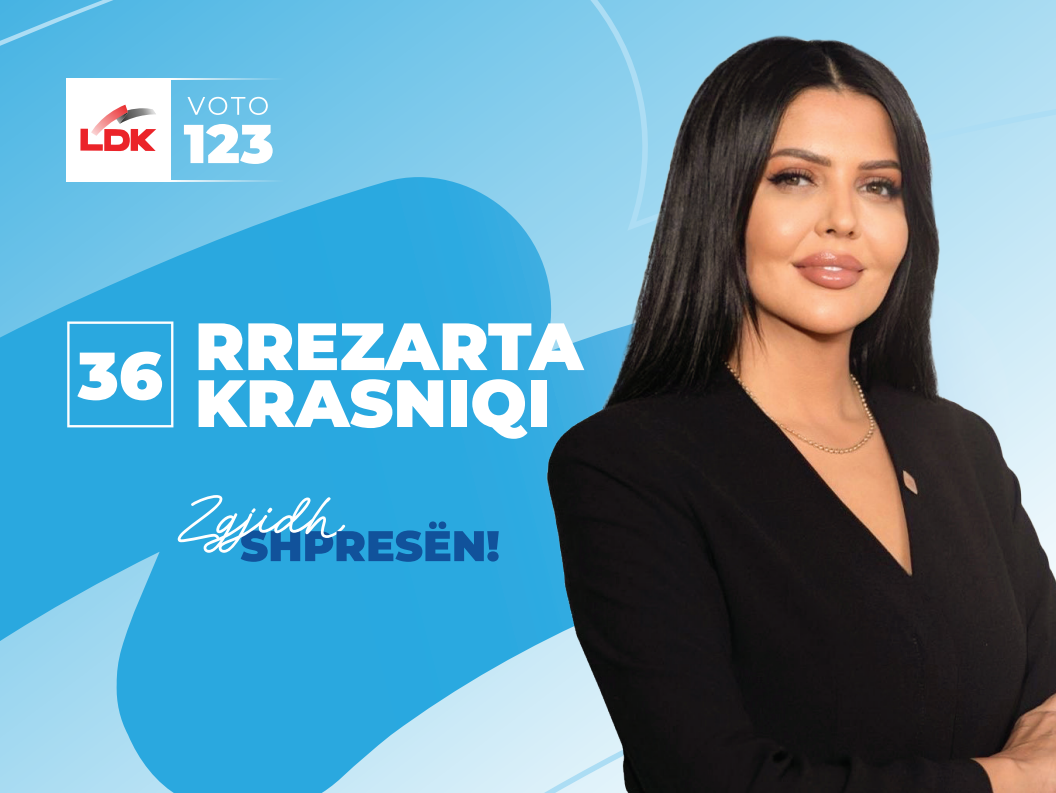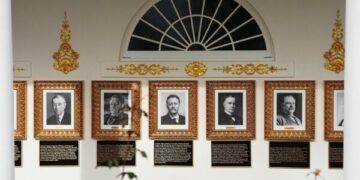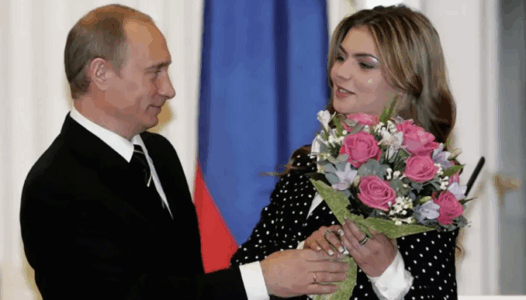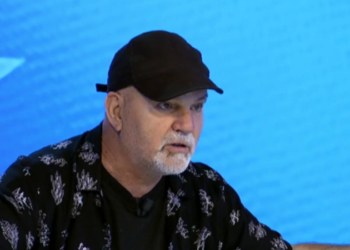Fatlum Jashari
Kosovo is a country with mostly Albanian population, followed by other communities with a smaller percentage of 10.44%, Roma, Serb, Turk etc. These communities have lived in Kosovo for years and share the land of Kosovo with Albanians. While Poles are the population with the highest percentage in Poland, while the non-majorities are made up of other communities such as Ukrainians, Belarus, Indians etc.
But the regulation of the legal policies in the institutional treatment of non-majorities do not have the same basis, because in Kosovo there are a percentage of different communities that have lived in this country for decades, and there are no foreigners who constantly want to get citizenship of this country like in Poland, where there are always people who are interested in living and working there, especially the last few years. Immigrants who recently move do not have the same status as those who have lived for decades and centuries in that country, Poland or Kosovo, because they contributed together with natives to state building. Below we will see analysis and data in this aspect. Respect and equal treatment of non-majorities is an issue, which is regulated by law in every european country, but many different factors often lead to improper implementation in many cases in real life, such as e.g. Article 11 of the Kosovo Civil Service obliges that in each institution there must be 10% of the civil service from non-majority communities in the country. But our research shows that this article is not sufficiently implemented. This is confirmed by the Minister of Local Government Administration of Kosovo, Elbert Krasniqi, where he says that there are challenges in implementing that law.
Education
With a look at the official documents of the public university of the capital of Kosovo, Pristina, on the occasion of publication of the results for admission of new students, we find that there are always percentages provided for non-majority communities. So, it is in accord with the law or statute of this University where certain percentages for students from non-majority communities should be reserved.
Further, in south Kosovo, in the multiethnic city, where different communities live such as Roma, Turks, Bosnians etc., we have the public University of Prizren “Ukshin Hoti”. Study programs are offered in the respective languages e.g.: for the non-majority Bosnian community in the Faculty of Education there is the program “Primary Education” and “Preschool Education” that is realized in their language. Also for the Turkish community living in Prizren the program in Turkish language at the Faculty of Education “Primary Education” and “Preschool Education”. This is also found in the Faculty of Computer Sciences, Special programs in Bosnian and Turkish. “Kosovo is an example how non-majority communities should be respected. They are able to learn in their language at all levels, employment etc.” -says for us assoc. prof. dr. Shkelqim Millaku, professor in a multicultural university in Kosovo such as “Ukshin Hoti” in Prizren.
As far as primary and secondary education is concerned, we also find there the proper application of the law for non-majorities. We visited Prizren again, where different communities live. In the elementary school “Lidhja e Prizren”, there are special parallels for each class for Bosnian community students. We were in school closely and we saw that the teachers were Bosnians too, and although in a small number of students, the teaching process was conducted in their own language. The director of this school, Mr. Vloran Cenaj confirmed the existence of parallels, also noting that they face many challenges, such as lack of adequate literature.
Here we observe the pursuit of a policy that is convenient for non-majority communities, where Albanian language learning is not imposed, nor the introduction in a classroom where teaching is conducted in this language, also no courses are offered, except Albanian as an elective subject. Bosnians have lived in Kosovo for years, but they still speak and preserve their Bosnian language, and many of them do not know Albanian. For curiosity, there is no center in Kosovo where Albanian language courses are held.
In Poland there are 282,000 students and 26,000 foreigners from them. “Every student is treated equally”- says for us from Int’l Cooperation Department Office Warsaw City Hall. In Poland, the approach of offering Polish language courses is followed, i.e. encouragement in Polish learning rather than also providing the possibility to attend schooling in their mother language, especially for non-majority communities with larger presence such as Ukrainians. In Poland we see the existence of many centers for Polish language learning. Contacted by us, by Int’l Cooperation Department Warsaw City Hall say: “For children who have no basic knowledge of Polish language we have preparation classes where children learn Polish language”.
For students of other communities who come for the first time to attend school in Poland, they are offered language assistance from the Polish institutions. “The leading teachers may be assisted by a person who speaks the language of the pupil’s country of origin. A person speaking the language of the child’s country of origin employed by the school principal up to 12 months”.
As it appears in the regulation of the Website of the Republic of Poland, even though education is not offered in their language, it is offered opportunities to learn the language and culture of the country of origin, as it is the commitment of the centers. There is a need especially for the population of the Ukrainian community that has grown since 2022 in this country, for providing education in their language and help them catch the step in education before they reach Polish language at an adequate level. Contacted by us, the Warsaw City Hall office, among others, says that they also offer courses for learning Polish and leaflets where information is presented.
In university education, at the public University of Poland’s capital, Warsaw, there are 50 English language programs for all those who cannot study in Polish. University also offers language centers, if interested in developing the language competences can choose from among almost 40 languages, taught by several University units: Faculty of Modern Languages, Faculty of Oriental Studies, Faculty of Polish Studies, Centre for Foreign Language Teaching.
Jagiellonian University in Krakow offers also varieties of programs where studies can be pursued in several languages, including those of non-majorities living in Poland. Among many programs in English, which is a very good opportunity for foreigners, especially those who have moved on recently in Poland to integrate quickly into academic life, as they progress in Polish learning. One of them is the first-cycle programme—”East European Studies: Languages and Discourses”, where intensive courses are offered in two foreign languages, Russian and Ukrainian for communities living in Poland. Participants can master two Slavic languages in an international setting!
Employment
In Kosovo, non-majority communities make up 10.44% of the population of Kosovo, according to the statistics of 2013. From the total number, 8.41% are employed, while 2.03% remain unemployed.
It is estimated that lack of education, lack of work experience and information has influenced that the participation of the Roma community in employment was only 0.2%, and consequently it was estimated that 60.22% of this community in Kosovo were unemployed. These phenomena are still exhibiting obstacles to the integration of the Roma community in Kosovo. This is evidenced even by the fact that in an open public call for Roma translators in Prizren there was no application despite recalling several times.
In the other side in Poland, according to the latest data from the Social Insurance Institution (ZUS) in Poland, nearly 1.3 million foreigners were legally working in the country at the end of October 2023, representing almost 7% of its total workforce.
The majority of migrants registered with the ZUS at this point came from Ukraine (761 000). The special community living in Poland is Ukrainian, due to political and geographical circumstances. The State of Poland has policies that specifically regulate these rights, either in the employment process or in residence in the State of Poland.
There are many opportunities for work in Poland. This is also evidenced by the small percentage of unemployment among non-majorities.
Initiatives for integration
In Kosovo, we see a lack of activities and opportunities for integration of non-majority communities. With the marking of the Roma community day, apart from a congratulation from the heads of government institutions in Kosovo, it is not noticed that any activity aimed at promoting their community and cultural practices has been carried out.
We see an activation in this issue in Kosovo by non-governmental organizations, which are activated with different projects in order to provide their opportunities. These projects that are implemented are funded by international organizations such as USAID, OSCE etc.
The state of Poland is distinguished in this aspect where it has formed various multicultural centres especially in the capital. When we contacted the Warshaw City Hall office, we were given details where they always carry out projects for foreigners. The foreigner’s assistance center is provided by the Foreigners Assistance Center, where among others, support from cultural mentors: on-site and telephone counseling, support in contacts with institutions, in access to medical care psychological, psychotherapeutic and legal assistance career guidance intervention and material assistance Polish language courses integration support groups for foreign women. “The city each year has projects dedicated to foreign Warsaw inhabitants, the integration ones are described at the website”- says for us from Int’l Cooperation Department Warsaw City Hall.
Fatlum Jashari is a journalist and researcher from Kosovo. He has published in many international journals and presented papers in many international conferences around Europe.
The publication of this article is part of PERSPECTIVES – the new label for independent, constructive, multiperspective journalism. PERSPECTIVES is being implemented by seven editorial teams from Central and Eastern Europe under the leadership of the Goethe Institute. The author of this article participates in the PERSPECTIVES Journalists-in-Residence Program at the Goethe Institute Warsaw.




